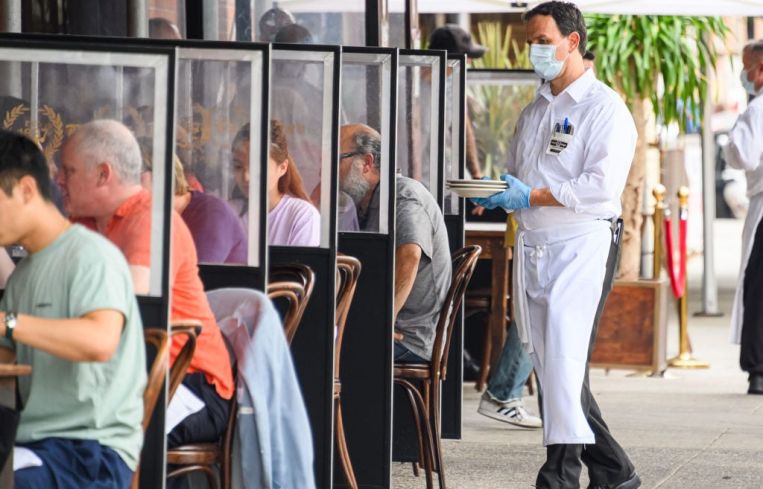NYC Restaurants’ New 10 Percent COVID-19 Surcharge Could Prove Boon for Owners
By Nicholas Rizzi September 17, 2020 11:09 am
reprints
New York City restaurants could soon charge a 10 percent coronavirus surcharge to diners’ bills.
The New York City Council approved a bill yesterday that gives eateries’ the option to tack on a 10 percent “COVID-19 Recovery Charge” to a customer’s total bill to help restaurants offset the costs of supplies required to stay open during the pandemic.
“The bill will give restaurants the freedom they need to increase revenue to help cover rapidly rising labor and compliance costs and keep them in business,” Staten Island Councilman Joe Borelli, who sponsored the bill, said in a statement. “This new policy is coming as a result of the impact of COVID-19 on our city but I have every intention of making this change permanent.”
As part of the law, restaurant owners would need to clearly disclose the COVID surcharge on its menu and the bill, according to the City Council. It will take effect immediately once signed into law by Mayor Bill de Blasio and be allowed up to 90 days after full indoor dining returns in the city.
Restaurant trade group the New York City Hospitality Alliance praised the bill as a way for eateries struggling to survive during the pandemic to pay for added costs for things like personal protective equipment for staff.
“New York City restaurants have been financially devastated, and it only makes matters worse that a 45-year-old regulation discriminates against only the restaurant industry by prohibiting these small businesses from having the option of using a clearly disclosed surcharge, if they so choose,” Andrew Rigie, executive director of the Hospitality Alliance, said in a statement. “The passage of the COVID-19 recovery bill will help struggling restaurants generate additional revenue to help pay for expenses like PPE for their employees, outdoor dining setups, rent, labor and other expenses to give them a fighting chance of survival.”
But not everyone was as enthusiastic as Rigie. One Fair Wage, a nonprofit pushing to end the sub-minimum wage that tip workers receive, argued that while the surcharge was a good idea to help restaurant owners it could cut into tips given to servers.
“We need to support New York City’s restaurant industry during this unprecedented crisis, but as we do that — we cannot just focus on restaurant owners, at the expense of restaurant workers,” Saru Jayaraman, president of One Fair Wage, said in a statement. “The surcharge is a good idea. But it won’t work if the restaurants that apply the surcharge aren’t paying their workers a minimum wage, as it would have cut into the already-reduced customer tips of these same workers who are already facing financial catastrophe.”
City restaurants have been decimated by the coronavirus pandemic, which forced them to switch solely to take-out or delivery models in mid-March to curb the spread of COVID-19. Thousands of workers have been laid off and thousands of restaurants are expected to permanently shutter.
In July, more than a third of restaurants weren’t able to pay any rent for the month and 83 percent reported not being able to make the full rent bill, according to the Hospitality Alliance.
The city started to allow eateries to offer outdoor dining in July — and quickened the permitting process to get it up and running — and Gov. Andrew Cuomo announced last week that indoor dining can return on Sept. 30 at a 25 percent capacity.



